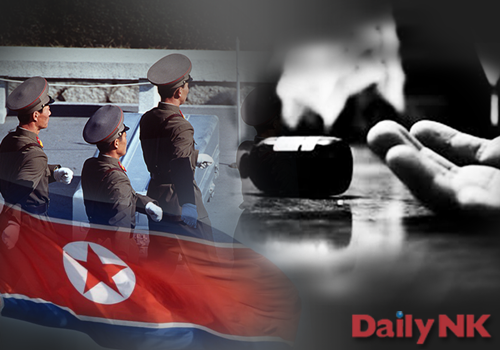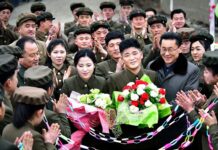
On July 22, Yonhap News reported that a family of five defectors in China committed suicide by ingesting poison. In response, North Korea has tasked its new State Affairs Commission with dispatching agents to the border region to gather intelligence and censor the news.
North Korea’s intelligence agencies are normally tasked with monitoring and cracking down on overseas phone calls, remittances, smuggling, and drug sales in the border region. But the recent incident has been deemed sufficiently sensitive that the State Affairs Commission has been delegated responsibility for dealing with the aftermath. The State Affairs Commission was created in 2016 and is the country’s supreme national guidance organ.
“Kim Jong Un issued a direct order to launch a censorship campaign to cover up the family suicide,” reported a Ryanggang Province source during a phone call with Daily NK on August 18. “The State Affairs Commission is using smugglers to censor and monitor the movement of residents nearby, causing heightened levels of anxiety”
“They are using military guardposts and digging temporary hideouts so they can monitor the movements of people in the border region. They are even stopping locals from moving around to trade, and this is causing some discontent,” the source continued.
“There is also a rumor that agents have been dispatched to China to track down any smugglers or brokers who were somehow connected to the family of five.”
According to the source, the investigation is likely to lead to a large number of cadres getting punished or expelled. One of the defectors who committed suicide was a member of the Workers’ Party, meaning that the incident is politically sensitive.
It is also likely that surveillance in the border region for defections and river crossings will increase considerably in the near future. Security and intelligence agents, seeking to shield themselves from the type of harsh punishments that can befall high-level cadres, will likely increase their efforts to produce results.
“The relevant agencies are usually punished severely for allowing the defection of a cadre under their watch and it seems likely that the same will happen in this case. The cadres are sensitive to this kind of terror politics, and will seek to protect their own positions by apprehending more defectors. The central authorities are well aware of this dynamic and are using it to their advantage,” said a separate source in Ryanggang Province.
The atmosphere of terror and strict censorship naturally flows down to the residents. As the authorities look to implement the censorship campaign, the Socialist Women’s Union of Korea and other affiliated agencies of the Workers’ Party have all been issued with orders to “deal with the current circumstances by leading a revolutionary, battle-like life.”
The increasing pressure is having a cumulative effect, creating significant stress for the residents, the second source said, noting that residents are saying that they are feeling great anxiety as they wait to see who will “become the scapegoat for the family suicide incident.”
However, there will likely also be repercussions for the leadership. The abrupt increase in censorship and surveillance is causing more people to find out about the family suicide.
“The residents became suspicious when they saw surveillance efforts being doubled. Some are wondering how the family was able to defect. They talk about how desperate the family’s situation must have been if they ended up committing suicide together,” she said.
One of the family members was a Workers’ Party cadre and lived in a rural region. The family was heading for South Korea when they were arrested by Chinese police and were facing repatriation back to North Korea. They decided to commit suicide together by ingesting poison, which they had hidden on their person, rather than be taken back to the North.



















